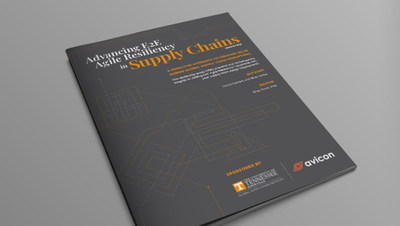|
01.04.2021 23:25:00
|
Resilient Supply Chain Design Gives Organizations a Market Edge During Pandemic
KNOXVILLE, Tenn., April 1, 2021 /PRNewswire/ -- For almost 20 years, supply chains' value to organizations centered on efficiency and cost minimization, which created complexity and – as COVID-19 has demonstrated in the extreme – left enterprises vulnerable to disruption. A new study from the Global Supply Chain Institute (GSCI) now quantifies the impact of supply chain disruptions on organizational performance and provides a pathway for assessing and increasing supply chain resiliency.

"Supply chain leaders have warned about vulnerability for years, but the boardroom and shareholders are finally becoming concerned about the traditional quick-fix, crisis-response approach," says David Demers, a GSCI fellow at the University of Tennessee, Knoxville'sHaslam College of Business, and co-author of "Advancing E2E Agile Resiliency in Supply Chains." "Disruptions like the trade war and the pandemic last longer and come more frequently than previous disruptions, and enterprises with systemic readiness for them gain significant market share."
Demers and his co-author, Brian Kolek, used their company, Avicon's proprietary software to analyze performance for the top 16 to 24 organizations in the consumer-packaged goods (CPG), medical devices and industrial machinery industries. The analysis covered two quarters, one before and one during the pandemic. Their Diamond Analysis connects end-to-end (E2E) supply chain design to key financial metrics, placing a firm's performance in one of four quadrants in comparison to its peers. The result shows the clear market winners in each industry during the pandemic and the supply chain design levers they used to their advantage.
"COVID-19's impact is significantly uneven within industries," Demers says. "Even in industrial machinery, a sector that took large hits as a whole during the pandemic, there are standout companies that mitigated losses and even made gains. That range between loss and gain appears connected to their supply chains' level of agile resiliency."
Demers and Kolek define agile resiliency as supply chain design that adopts the best attributes of end-to-end agility and resiliency readiness. Their research identifies 10 critical capabilities for agile resiliency, including: the use of metrics; a command center; disruption tools and methods; agile resiliency consideration in network and workflow design; trading partner alignment and cross-enterprise teaming; and readiness and dynamic response.
Interviews with executives at 22 leading supply chain organizations informed these capabilities and identified leadership as a top precondition for creating agile resiliency. The paper provides a model to assess and build leadership capabilities for agile resiliency, identifying six key areas of concern. The paper's Agile Resiliency Enablement Blueprint guides organizations through the steps of creating their own agile resiliency supply chain design.
The paper also includes a case study of a CPG firm that created significant value and market gains through agile resiliency during the pandemic quarter measured. The authors warn that every organization's agile-resilient design will be unique, but they detail what the case-study organization implemented in each of the 10 critical areas.
"Advancing E2E Agile Resiliency in Supply Chains" is the Global Supply Chain Institute's 24th white paper. Copies of GSCI's previous white papers also are available for download.
About the Global Supply Chain Institute
The Global Supply Chain Institute at the University of Tennessee, Knoxville'sHaslam College of Business shapes and influences the practice of supply chain management by serving as the preeminent global hub for leading practitioners, academics and students to learn, network and connect.
About Avicon
Avicon is a supply chain applied learning and team development practice. Avicon's proprietary SCALE-Up (Supply Chain Applied Learning Excellence) program was designed to address the growing level of complexity in supply chain operating systems.

![]() View original content to download multimedia:http://www.prnewswire.com/news-releases/resilient-supply-chain-design-gives-organizations-a-market-edge-during-pandemic-301261082.html
View original content to download multimedia:http://www.prnewswire.com/news-releases/resilient-supply-chain-design-gives-organizations-a-market-edge-during-pandemic-301261082.html
SOURCE University of Tennessee, Knoxville'sHaslam College of Business
 Der finanzen.at Ratgeber für Aktien!
Der finanzen.at Ratgeber für Aktien!
Wenn Sie mehr über das Thema Aktien erfahren wollen, finden Sie in unserem Ratgeber viele interessante Artikel dazu!
Jetzt informieren!